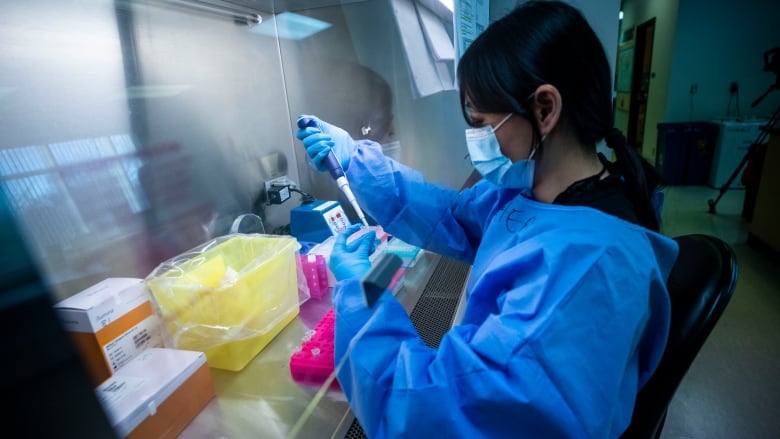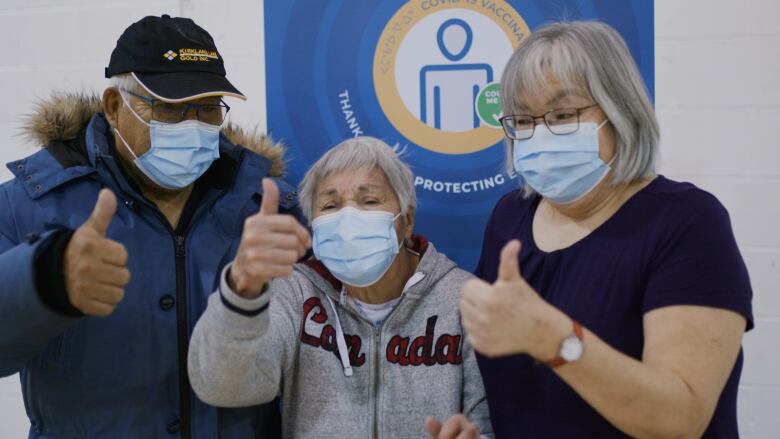COVID-19 in Indigenous communities: active cases in First Nations continue downward trend
More than 400 new cases reported in the last week

Active casesofCOVID-19 inFirst Nations communities are continuing on a downward trend, thoughnew infections persist.
Indigenous Servicesdata shows,as of Feb. 15, more than 400 new infectionscompared to the week before. The highest number of those new cases, 149, were reported out of British Columbia.
There are currently1,484active cases of COVID-19 on First Nations reserves across Canada, according to the latest federal data.
Amidongoingconcern about the spread of new, morecontagious coronavirus variants, two remote First Nations in Manitoba have been waitingon the National Microbiology Lab this week to find out if the B117 variant is spreading intheir communities.
One of those communities isPauingassi First Nation in Manitoba,where theCanadian Armed Forces has been providing humanitarian assistance since earlier this month afteraconcerning spike in COVID-19 cases.
14 new deaths reported
Since the pandemic began, reserve communities across the country have seen atotal of 19,068 cases of COVID-19, and204 people have died.
Fourteen of thosedeaths were reported by Indigenous Services Canadain the lastweek.
The total number of hospitalizations has risen to 871, while17,380First Nations people have recovered from the disease.
Total cases in First Nations communities per region reported as of Feb. 15:
- British Columbia: 2,047.
- Alberta: 5,570.
- Saskatchewan: 5,197.
- Manitoba: 4,951.
- Ontario: 737.
- Quebec: 556.
- Atlantic: 10.
The data published by Indigenous Servicesdoes not reflect cases among First Nations people who live off-reserve, orthe impact of COVID-19 among Mtisand Inuit.
In Nunavut,active cases of COVID-19 continue to persist. All of the currentinfections areisolated to the hamlet of Arviat,where travel is currently restricted toemergency or essential purposes. There were23active casesof COVID-19 in the communityas of Tuesday.
Vaccinerollout ongoing
Vaccination clinics are ongoing in the territory, and across the country.

As of Feb. 12, Indigenous Services Canada reported 400 Indigenous communities with vaccination campaigns underway. Italso reported that78,000 doses of vaccine had been administered in those communities.
In B.C., the First Nations Health Authority announced on Tuesdayit is on track to provide a first dose of vaccine to anyone on-reserve who wants it by the end of March.
What are the symptoms of COVID-19?
- New or worsening cough.
- Shortness of breath or difficulty breathing.
- Temperature equal to or over 38 C.
- Feeling feverish.
- Chills.
- Fatigue or weakness.
- Muscle or body aches.
- New loss of smell or taste.
- Headache.
- Gastrointestinal symptoms (abdominal pain, diarrhea, vomiting).
- Feeling very unwell.
If you think you may have COVID-19, please consult your local health department to book an appointment at a screening clinic.
CBC Indigenous is looking to hear from First Nations, Mtis, and Inuit who have contracted or lost a loved one to COVID-19. If you would like to share your story, please email us at indigenous@cbc.ca.












_(720p).jpg)


 OFFICIAL HD MUSIC VIDEO.jpg)
.jpg)



























































































